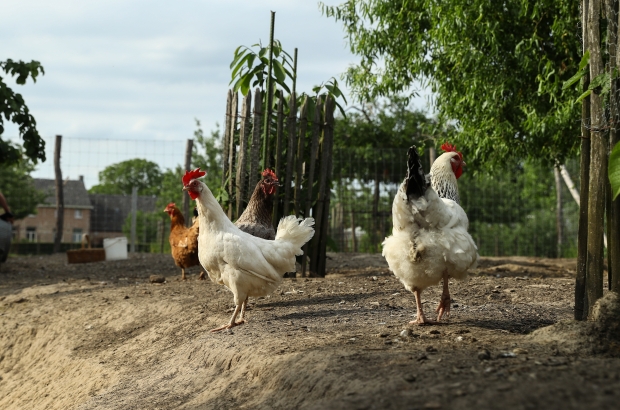- Daily & Weekly newsletters
- Buy & download The Bulletin
- Comment on our articles
As avian flu cases rise, authorities remind people to not touch dead animals
Due to a rise in the number of cases of bird flu, Belgium’s Federal Agency for the Safety of the Food Chain (FASFC) is reminding people to avoid contact with dead animals.
The agency is calling for increased vigilance regarding poultry and wild birds in particular after a second outbreak of the highly pathogenic avian influenza on a West Flemish farm near the French border.
“In order to avoid any further spread of the virus, and in accordance with European and Belgian legislation, the poultry and birds still present will be euthanised,” the agency explained.
“In these areas, strict biosecurity measures are imposed. Anyone detecting signs of disease in their poultry or birds should consult a veterinarian.”
FASFC said the avian influenza virus had already been circulating widely among wild birds since September. Therefore, the risk of contamination of poultry with avian influenza through contact with wild birds is high.
“We are asking walkers and passers-by to report any dead wild birds they come across via the freephone number 0800 99 777,” the agency said.
Avian influenza, or bird flu, is a highly contagious viral disease to which all bird species are likely susceptible.
While FASFC said there was no scientific indication that the virus is also dangerous to humans, the nature of the symptoms and the course of the disease depend on the pathogenicity of the virus strain, the affected animal, the environment and other possible infections.
“Contamination can occur through direct contact with sick animals or through exposure to contaminated material, such as faeces or dirty crates,” they explained. “Indirect contamination is also possible through the air, but over relatively short distances.”
The virus is highly contagious to birds and in some cases can be transmitted to mammals, for example if a fox eats sick or dead birds.
It has also already been detected in dead seagulls in the Brussels neighbourhoods of Anderlecht, Forest and Laeken.
Employees of Brussels Environment are being asked to wear gloves and a face mask when touching a dead animal.
Residents who find one are asked not to touch the carcass and instead to call the centre to report it.














